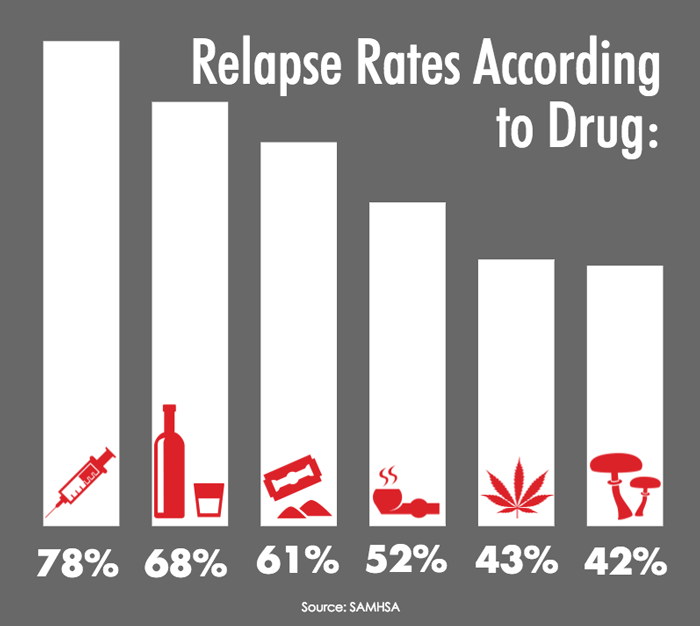 The Long Road Ahead
The Long Road Ahead
With first-year relapse rates as high as 85%[1], aftercare has never been more important to the recovery process. The more we come to understand about addiction, the more we see that patients of prolonged addiction struggle to get through the first year out of treatment. Issues with family, economic hardship, inability to resist temptation and break old patterns and stigma are very real obstacles that patients face once they leave residential treatment. This impedes their ability to reintegrate into society and they very often relapse as a result.
When Life Gets in the Way
A patient’s aftercare plan needs to address all of the obstacles they’re likely to face once they complete inpatient rehab. This includes family interaction, relationship dynamics, vulnerability to temptation and practical concerns like financial stability and overall health. These are issues that should be addressed as early as possible during the treatment process. Each patient’s background is different and thus they each face a unique set of circumstances that can trigger a relapse. It should be incumbent on their therapist to identify patients’ individual issues and help them manage these concerns during the treatment process. If they get a head start, they will be much better prepared to face the world upon re-entry.

A Family Thing
Family-related stress is one of the leading causes of relapse. Patients that have difficulty rejoining their family often feel as though they’ve lost their whole outside support system. Common causes of family tension include the addict refusing to recognize the boundaries set forth by their family, and the family’s inability to provide the proper level of support for the addict. Confusion and unrealistic expectations can lead to potentially harmful interactions. This can be fixed through preemptive family therapy education. If both parties are clear on exactly what they need to do in order successfully reconnect, the transition back into the home will go a lot smoother.
Getting Past the First Year
Relapse rates decrease significantly after the first year out of treatment[2]. This is because after a time, many patients have a routine in place as well as designated resources to depend on in the event of the threat of relapse. They can call their sponsor, talk to their therapist or even reach out to their old doctor at their treatment facility. The rate of relapse is even lower after five years. Although there is no guarantee, patients are generally more likely to stay clean after this amount of time. The first year out of treatment is crucial to a patient’s long-term success because it’s during this time that they essentially learn to live a new life. There are bound to be some roadblocks along the way, which is why treatment facility should offer support networks to reduce the potential for vulnerability and trauma post-rehab.
Keeping In Touch
Aftercare, on one level or another, should be tied into each patient’s discharge plan. Whether this takes the form of a referral to AA or NA meetings, regular patient follow-up or transition to supportive housing, patients should not lose the lifeline to their facility immediately after completing their treatment program. The first year out of treatment is crucial to a patient’s long-term success. We have a much greater responsibility to our patients than simply being there to admit them back into treatment if they start using again. Immediately following treatment, they are vulnerable and more prone to relapse than ever before. Efforts must be made to protect them from simply becoming another tragic statistic.
A Resource Sorely Lacking
Despite the desperate need for aftercare and patient follow-up, many facilities are ill-equipped to offer these vital recovery resources. In many facilities, communication ends once patients exit the building. This creates a sort of social vacuum in which patients have to blindly navigate their way through this new life in recovery. Behavioral Health of the Palm Beaches offers comprehensive patient follow-up services to ensure that each one of or alumni stay on track toward recovery. Our commitment to our patients continues well after they leave our premises. Contact us today if you or a loved one is suffering from substance abuse.



